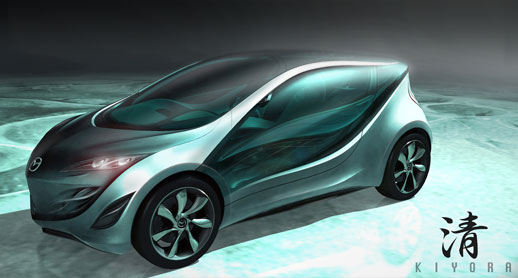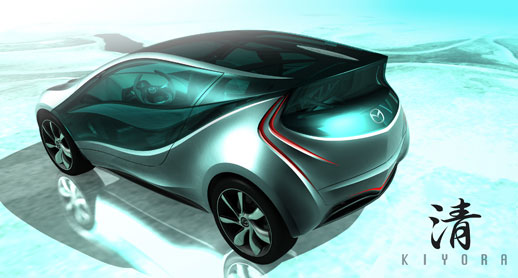When the Volvo V40 launched in February 2013, the Swedish carmaker took to pushing its �??safety first�?? barrow harder than ever before �?" after all, their new hatch is equipped with the world�??s very first pedestrian airbag.
But groundbreaking safety technology isn�??t the only exciting thing about a car that could be fairly described as the most important Volvo model in 20 years.
The V40�??s sleek Scandinavian design is one of the standouts in the segment, as is its innovative interior exemplified by the wonderfully clever digital instrument display behind the steering wheel.

There�??s also the choice of four very capable turbocharged engines in either petrol or diesel that offer a blend of performance, efficiency and general driver appeal.
You can read our overview of the entire Volvo V40 range elsewhere, but here we�??re testing the $41,990 (before on-road costs) V40 D4 Kinetic that stands as the most powerful diesel model in the line-up.
Its 2.0-litre five-cylinder turbo diesel delivers 130kW with a stomping 400Nm of torque to the front wheels.

That�??s significantly more than the $34,990 entry-level V40 D2 that produces 84kW and 270Nm from its 1.6-litre four-cylinder.
It�??s also appreciably better than its market equivalent diesel-powered German rivals. The $45,300 Audi A3 2.0-litre TDI generates 125kW and 350Nm of torque, while the $46,593 BMW 118d with 2.0-litre engine produces 105kW and 320Nm.
The all-new Mercedes-Benz A-Class range includes the $40,960 A200 CDI, but that only puts out 100kW and 300Nm from its smaller 1.8-litre four-cylinder turbo diesel.

While there�??s plenty of truck-like clatter on start up, the V40 D4�??s brawny diesel quickly morphs into an easy-listening, performance-like growl above 2000rpm once you�??re in the turbo zone. Below that, the tall gearing means there isn�??t a lot of urgency off the line.
Acceleration from 0-100km/h takes 8.3 seconds with the six-speed automatic (8.6secs for the manual tested), but what�??s more significant �?" and indeed surprising �?" is the overtaking surge available. Just dip your right foot and hold, and this is one Volvo hatch that doesn�??t hang about. It�??s particularly responsive in the mid-range.
However, this engine suffers from an overly boosty power delivery with a stampede of torque arriving between 1750rpm to 2750, after which the turbo surge starts to run out of puff.

The slick six-speed manual gearchange is mostly a treat, but is marred by an oddly weighted clutch pedal that�??s difficult to get used to and is almost reason enough to consider the automatic version.
On paper, Volvo claims a frugal 5.3L/100km (combined) for the more powerful V40 D4 variant, but we struggled to get fuel consumption below 9.0L/100km during our test period.
Volvo offers three distinct chassis set-ups across the V40 range, with the D4 equipped with the standard spec Dynamic chassis, which sits 10mm higher than both the Sport and Eco set-ups.

Dynamically, the V40 is good. There�??s loads of grip, the ride is generally comfortable and the steering is quick and precise. But it�??s not perfect.
Its 11.7-metre turning circle is deplorable for a small hatch, in Volvo tradition requiring more than a few normally unwarranted three-point turns.
There�??s also an artificial feel to the electrical power assist steering, especially around the dead-ahead, and it can also feel a little numb. Still, it responds well and weights up nicely, allowing the driver to properly exploit the Volvo�??s sound roadholding attributes.

Despite being the heaviest (1508kg) variant in the V40 range, the D4 turns in accurately and is largely resistant to understeer and torque steer, making this a mostly satisfying drive on twisty back roads.
The ride is also pretty good on the standard 17-inch alloy wheels so there�??s sufficient compliance in the suspension to deal with undulating surfaces. But damaged roads and expansion joints provide more of a challenge for the V40, which doesn�??t absorb these imperfections quite so well and is prone to fidget as a result.
Inside, there�??s more of that clean Scandinavian minimalism we�??ve come to appreciate from the brand, though with a marginally more upmarket approach to materials than that used in the smaller Volvo C30.

There are more soft-touch plastics and metallic accents, and the V40 continues with Volvo�??s trademark �??floating�?? centre console, which still looks classy and is aging well a decade after it was first seen.
Our lower-spec D4 Kinetic misses out on a variety of features from its more expensive ($45,990) �??Luxury�?? sibling (including a rear-view camera and leather trim), but it�??s still a nice place to be with cloth seats that are superbly sculptured and cushioned, allowing your posterior to sink in snugly.
The V40 Kinetic is also equipped with a raft of standard kit, such as a quality eight-speaker sound system, Bluetooth phone with music streaming, and a frameless auto-dimming rear view mirror.

Additional features include LED daytime running lights, heated, electric and retractable side mirrors, power driver�??s seat and climate control.
The pièce de résistance, though, is the fabulous new all-digital instrument display that can be used in three different modes: Elegance, Eco and Performance.
Along with unique colour schemes for each setting, simply push the indicator stalk and the entire graphics change with the standard speed dial replaced with a large rev-counter, not unlike the Lexus LFA supercar.

There�??s a 5-inch colour screen, which looks too small and out of place for what is a wide receptacle.
We�??re also not so keen on the pseudo keyless start system, either, which still requires the driver to insert the key fob beforehand.
The driving position is excellent and there�??s good vision to the front and sides thanks to the V40�??s low-rising dash and forward-sloping beltline. Rear vision, however, is hampered by the extra-wide C-pillar, making parallel parking a tad more difficult.

As a fully fledged family chariot, the V40 has a few more deficiencies: rear-seat leg and headroom is only just sufficient, and the rear doors are substantially smaller than the front, making ingress and egress more difficult than that of some rivals.
And don�??t expect class-leading boot space from the V40. Afforded with just 335 litres, the Volvo is smaller than the new-generation Golf (380L) but slightly larger than the Ford Focus hatch (316L).
This weakness certainly isn�??t helped by the fact that the rear seats tumble but don�??t fold flat, though theoretically the load space does swell to 432 litres.

There�??s a flexible load floor, but don�??t bother with it unless you want to hide a laptop in the 9cm-deep tray that exists under the main deck.
Unsurprisingly, the V40 is loaded with the latest active and passive safety kit including Volvo�??s City Safety (to 50km/h), stability and traction control, advanced stability control, anti-lock braking with electronic brake distribution and emergency brake assist.
There�??s also seven airbags (excluding the pedestrian airbag), cruise control, rear parking sensors and auto rain and headlight sensors as part of the standard package.

Buyers can also upgrade with the Driver Support Pack ($5000), which adds adaptive cruise control with collision warning and full auto brake, blind spot information system and cross traffic alert, driver alert system (includes active high beam), forward collision warning, lane keeping aide, lane departure warning, roadside information system and park assist pilot.
Overall, what punters get from the V40 D4 is an exceptionally dynamic, very well equipped and competitively priced proposition against its closest luxury hatchback rivals �?" especially when you factor in Volvo�??s free scheduled servicing for three years/60,000kms.

Volvo, however, doesn�??t have the same brand cachet as the likes of Audi, BMW and Mercedes, and it�??s a more natural competitor to the new Volkswagen Golf Mark 7 that is available as a top-shelf diesel from $34,490 and CarAdvice has rated a maximum five stars.































































